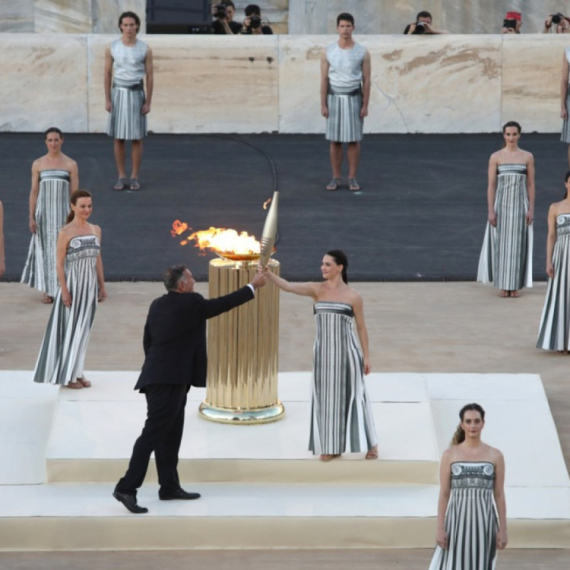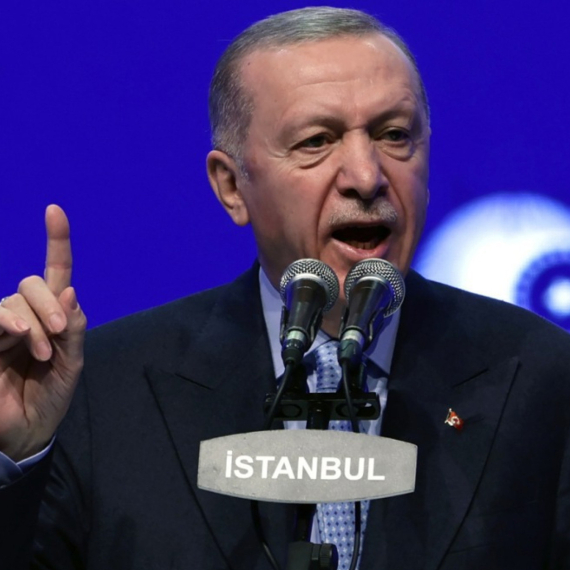New public procurement legislation enters into force
The new Serbian Public Procurement Law, designed to ensure better control and responsibility, entered into force on Monday.
Tuesday, 02.04.2013.
09:36

BELGRADE The new Serbian Public Procurement Law, designed to ensure better control and responsibility, entered into force on Monday. The new legislation should also provide greater efficiency in the fight against fraud and corruption. New public procurement legislation enters into force The new law envisages partial centralisation in the area of public procurement and the procurements for government bodies, primarily those that cover expendables, and will be implemented by the Administration for Joint Services. According to the new law, a civil supervisor will monitor the public procurement process worth RSD 1 billion. The document envisages a cut in the number of exceptions to the implementation of the law and the number of negotiating processes, as well as the mechanisms for the prevention of cases connected to conflict of interests and corruption in the public procurement sector. It also envisages the introduction of new proceedings such as a competitive dialogue. Programme director of Transparency Serbia Nemanja Nenadic stated in an interview for Tanjug that the new law is good in terms of countering fraud and corruption. Nevertheless, he said, its implementation entails the need for resources for the work of the Public Procurement Administration, Commission for the Protection of Rights, budget inspections other bodies in charge of implementing the law and monitoring the process. Nenadic noted that the new law does not apply to some high-cost public procurement cases such as the ones funded from international loans and those based on international agreements. These are exempt from the implementation of the law and this limits the scope of its application, Nenadic said. Another important bylaw will be adopted in autumn to regulate the planning process in the area of public procurement, Nenadic said and expressed the belief that the greatest problem in the sector lies precisely in this stage. Economics professor Milenko Dzeletovic told Tanjug that the new law would make room for a cut in the number of direct talks or tete-a-tete deals by at least two thirds. He recalled that the assessments of the European Commission point to irregularities in one third of procurements in the public procurement sector worth EUR 900 million to 1 billion. The assessments of local experts show that the implementation of new laws would ensure EUR 500 to 700 million worth of savings for the state budget, Dzeletovic said and added that the full effects of the measures would be felt in 2014. Tanjug
New public procurement legislation enters into force
The new law envisages partial centralisation in the area of public procurement and the procurements for government bodies, primarily those that cover expendables, and will be implemented by the Administration for Joint Services.According to the new law, a civil supervisor will monitor the public procurement process worth RSD 1 billion.
The document envisages a cut in the number of exceptions to the implementation of the law and the number of negotiating processes, as well as the mechanisms for the prevention of cases connected to conflict of interests and corruption in the public procurement sector.
It also envisages the introduction of new proceedings such as a competitive dialogue.
Programme director of Transparency Serbia Nemanja Nenadić stated in an interview for Tanjug that the new law is good in terms of countering fraud and corruption.
Nevertheless, he said, its implementation entails the need for resources for the work of the Public Procurement Administration, Commission for the Protection of Rights, budget inspections other bodies in charge of implementing the law and monitoring the process.
Nenadić noted that the new law does not apply to some high-cost public procurement cases such as the ones funded from international loans and those based on international agreements.
These are exempt from the implementation of the law and this limits the scope of its application, Nenadic said.
Another important bylaw will be adopted in autumn to regulate the planning process in the area of public procurement, Nenadic said and expressed the belief that the greatest problem in the sector lies precisely in this stage.
Economics professor Milenko Dželetović told Tanjug that the new law would make room for a cut in the number of direct talks or tete-a-tete deals by at least two thirds.
He recalled that the assessments of the European Commission point to irregularities in one third of procurements in the public procurement sector worth EUR 900 million to 1 billion.
The assessments of local experts show that the implementation of new laws would ensure EUR 500 to 700 million worth of savings for the state budget, Dželetović said and added that the full effects of the measures would be felt in 2014.


























































Komentari 1
Pogledaj komentare